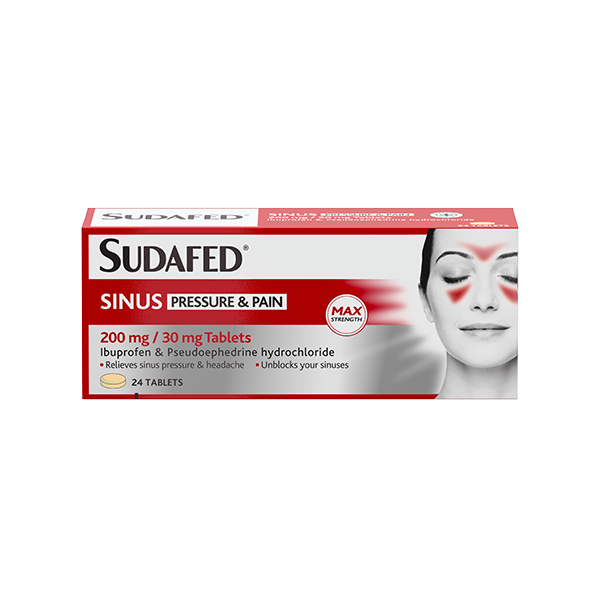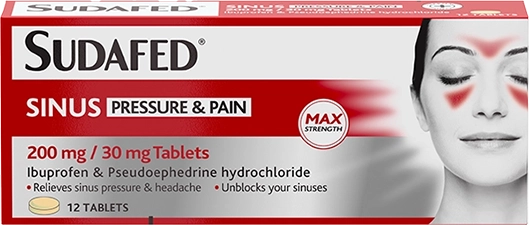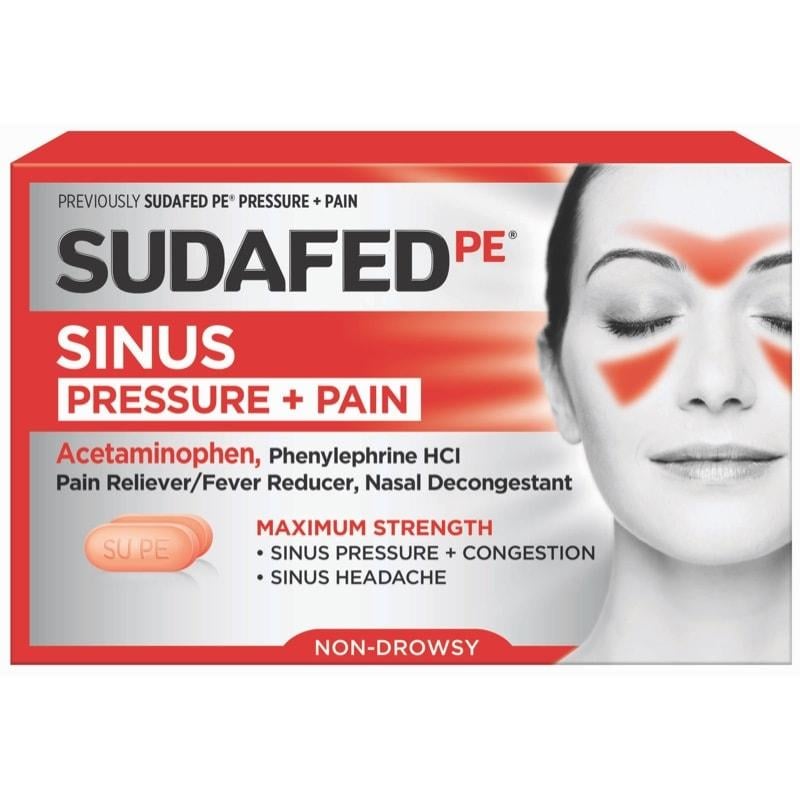We deliver to you every day from 7:00 to 23:00
The best discounts this week
Every week you can find the best discounts here.
What’s the Best Painkiller for Sinus Pressure?
Sinus pressure can be an uncomfortable and even debilitating condition that affects many people, especially during cold or allergy season. The feeling of fullness and pain in the face, combined with headaches, can make daily activities difficult. Fortunately, there are several ways to relieve sinus pressure, including the use of painkillers. In this article, we will explore the best painkillers for sinus pressure, how they work, and other strategies to help you find relief.
Understanding Sinus Pressure
Before diving into pain relief options, it’s important to understand what sinus pressure is and how it develops. Sinus pressure occurs when the sinuses, which are air-filled cavities behind the forehead, cheeks, and eyes, become inflamed or blocked. This inflammation can be triggered by a sinus infection, allergies, or even a cold.
The inflammation can cause the sinuses to become congested, leading to a feeling of pressure and pain. The most common symptoms of sinus pressure include:
-
Facial pain and tenderness around the eyes, nose, and cheeks
-
Headaches, particularly around the forehead or eyes
-
Nasal congestion or a runny nose
-
Fever (in cases of infection)
Over-the-Counter Painkillers for Sinus Pressure
When it comes to managing sinus pressure, many people turn to over-the-counter (OTC) medications. These medications can help alleviate the pain and discomfort associated with sinus pressure and make it easier to go about your day. Let’s take a look at some of the most common types of painkillers used for this condition.
1. Acetaminophen (Tylenol)
Acetaminophen is a popular painkiller that works by reducing the amount of prostaglandins, the chemicals in the body responsible for causing pain and inflammation. It’s often recommended for mild to moderate sinus pressure because it can relieve the pain without causing stomach irritation.
Acetaminophen is available in various forms, including tablets, liquids, and even effervescent options. It’s a great option for individuals who are sensitive to other painkillers, such as non-steroidal anti-inflammatory drugs (NSAIDs).
2. Ibuprofen (Advil, Motrin)
Ibuprofen is a non-steroidal anti-inflammatory drug (NSAID) that not only relieves pain but also reduces inflammation. Since sinus pressure is caused by inflammation in the sinuses, ibuprofen can help reduce the swelling and provide relief from both pain and congestion.
Ibuprofen is a great choice if you’re experiencing more severe symptoms and need to tackle both the pain and inflammation. It’s available in tablet, liquid, and gel cap forms, making it versatile for different needs.

3. Naproxen (Aleve)
Naproxen is another NSAID that works similarly to ibuprofen, though it has a longer-lasting effect. This means that you don’t have to take it as frequently, making it a convenient option for those who want long-term relief without constantly re-dosing.
Naproxen is effective for reducing pain and inflammation, which makes it a great choice if your sinus pressure is associated with more chronic or persistent symptoms.
4. Aspirin
Aspirin is one of the oldest pain relievers available. It works similarly to ibuprofen and naproxen by reducing inflammation, which can be helpful when dealing with sinus pressure. However, aspirin should be avoided by children or individuals with certain conditions like stomach ulcers.
Aspirin can be an effective choice for short-term relief, but it’s important to consult with a doctor or pharmacist if you have any underlying health conditions.
Combination Medications for Sinus Pressure
In addition to single painkillers, there are also combination medications that target multiple symptoms of sinus pressure. These medications often include pain relievers as well as decongestants, which help reduce the swelling in your sinuses and allow for better drainage.
1. Decongestant + Pain Reliever Combos
Many over-the-counter medications combine decongestants like pseudoephedrine or phenylephrine with pain relievers like acetaminophen, ibuprofen, or aspirin. These combinations are particularly effective for sinus pressure because they address both the pain and the underlying nasal congestion.
For example, Sudafed and Tylenol Sinus are popular choices. These products provide dual-action relief—reducing both the pain and the congestion associated with sinus pressure.
2. Nasal Sprays with Pain Relief
Nasal sprays such as Oxymetazoline can also provide relief by decongesting the sinuses directly. Some nasal sprays combine a decongestant with a mild pain-relieving agent to help provide fast relief.
These are ideal if you’re dealing with localized sinus congestion and need targeted relief, but they should not be used for more than 3-4 days at a time to avoid rebound congestion.
Natural Remedies for Sinus Pressure
While medications are effective, some people prefer natural remedies for sinus pressure. These remedies can be used in conjunction with painkillers to provide extra comfort.
1. Saline Nasal Irrigation
Saline nasal irrigation (using a Neti pot or saline spray) is a popular natural remedy for sinus pressure. The saline solution helps flush out mucus, reduce inflammation, and clear the nasal passages, providing relief from congestion.
This method is safe and can be done several times a day to keep the sinuses clear and reduce pressure.
2. Steam Inhalation
Inhaling steam can help soothe irritated nasal passages and reduce congestion. You can do this by filling a bowl with hot water, placing a towel over your head, and inhaling the steam for several minutes.
Adding a few drops of eucalyptus oil or peppermint oil to the water can further enhance the soothing effect.
3. Hydration
Staying well-hydrated is essential for managing sinus pressure. Drinking plenty of fluids helps thin mucus, making it easier for the body to clear it out of the sinuses. Hot tea with ginger or honey can also soothe your throat and help reduce sinus discomfort.

When to See a Doctor
While most cases of sinus pressure can be managed with over-the-counter painkillers and natural remedies, there are times when professional medical intervention is necessary. You should see a doctor if:
-
Your sinus pressure persists for more than 10 days
-
You experience severe pain, especially in the forehead or around the eyes
-
You develop a high fever (above 101°F or 38.3°C)
-
You notice a significant change in vision or have difficulty breathing
-
Your symptoms are accompanied by severe facial swelling
Prescription Options
If your symptoms are severe or don’t improve with OTC medications, your doctor may prescribe stronger treatments, such as antibiotics for a bacterial infection or corticosteroid nasal sprays to reduce inflammation.
FAQs About Painkillers for Sinus Pressure
1. What is the best over-the-counter painkiller for sinus pressure?
Ibuprofen and acetaminophen are the best over-the-counter painkillers for sinus pressure. They can help alleviate both the pain and inflammation associated with sinus congestion.
2. Can I take a decongestant and a painkiller together?
Yes, many combination medications are designed to pair decongestants with pain relievers. However, make sure to follow the recommended dosage and consult a doctor if you’re taking other medications.
3. How long does sinus pressure last?
Sinus pressure can last anywhere from a few days to several weeks, depending on the cause. If the pressure lasts more than 10 days, it may be a sign of a sinus infection, and you should seek medical attention.
4. Is it safe to use painkillers for sinus pressure during pregnancy?
If you’re pregnant, consult your doctor before taking any medications. Some painkillers, such as ibuprofen, are not recommended during pregnancy, while others like acetaminophen may be safer when used at the recommended doses.
Conclusion
Sinus pressure can be uncomfortable, but fortunately, there are several painkillers available to help alleviate the discomfort. Whether you choose acetaminophen, ibuprofen, or a combination medication, make sure to select the one that best suits your symptoms. Additionally, natural remedies like nasal irrigation and steam inhalation can further enhance your relief. If symptoms persist or worsen, don’t hesitate to consult with a healthcare professional to find the most effective treatment plan for you.












